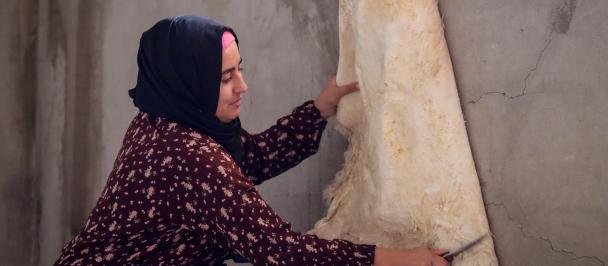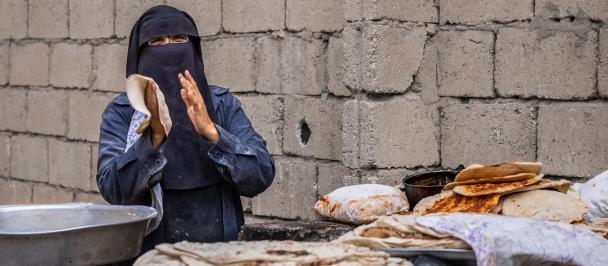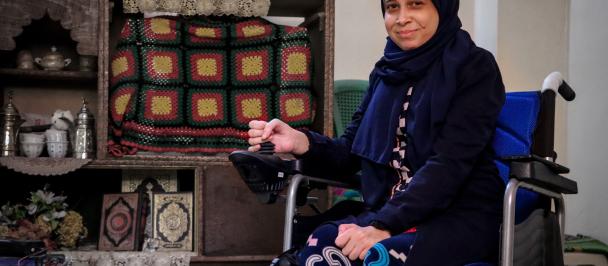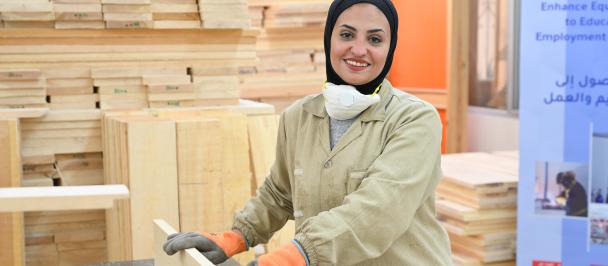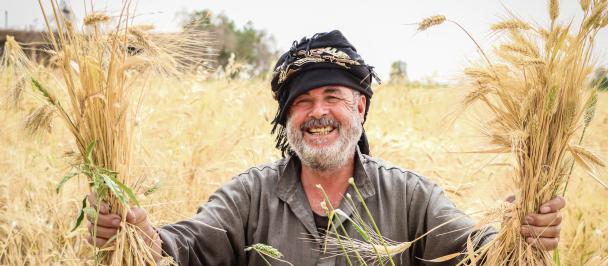Spreading Love and Empowerment through Culture
Warak Ateek: Where Coffee, Culture, and Inclusivity Blend
March 8, 2024
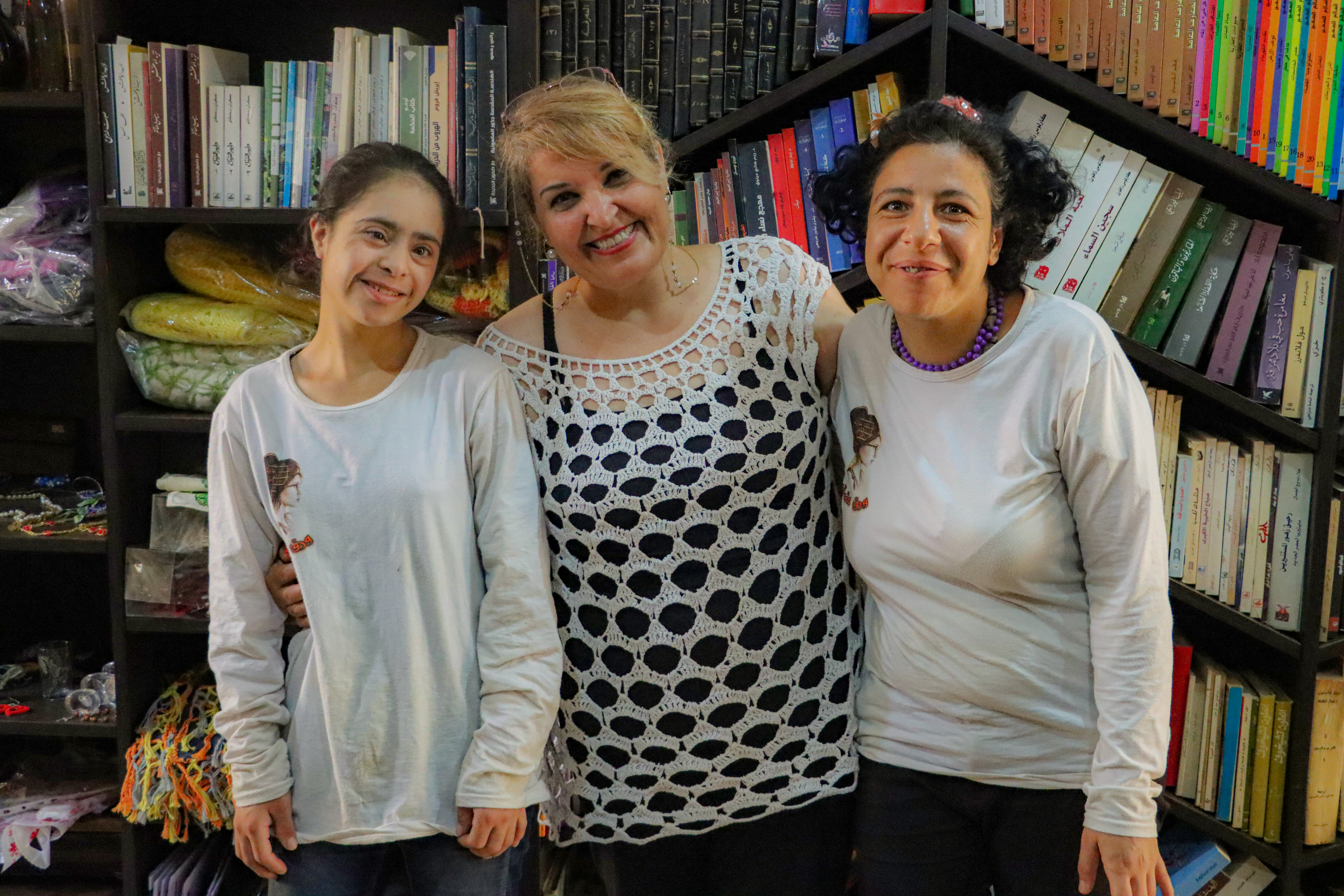
Left to right: Alia, Linda, and Marcelle
In a quiet neighbourhood in Lattakia, entering what looks like another café, you are instantly hit with a wave of serenity and warmth beaming from the smiley faces of Marcelle and Alia greeting you.
Marcelle is a 37-year-old woman with developmental disability, and Alia, a 24-year-old woman with Down Syndrome, have been working in the café for almost two years now.
Warak Ateek, which is Arabic for antique paper, is a cultural club and café owned and run by Linda Daher, a 49-year-old woman who was one of the 26 winning teams that received financial support and mentorship as part of the United Nations Development Programme (UNDP) Idea Challenge project, with funding from Germany. The project represents the first social enterprise programme in Syria to support the development of new and existing social enterprises that are led by women, staffed by women, and created for women who can be catalysts for change.
“Reading was my refuge since I was a little girl. I spent most of my allowance on books. My mom used to take them away sometimes. I always dreamed of owning a safe and quiet space where I could read in peace without being harassed,” said Linda. “I also volunteered at a very young age in an association that cares for Persons with Disabilities (PwDs). I was fascinated by their talent and abilities and, more importantly, their ability to spread love around them,” she added.
More than 12 years of crisis have pushed millions of people in Syria into unemployment and poverty. More than 90 per cent of the population in Syria is estimated to be living below the poverty line, and close to two-thirds live in extreme poverty, with women and persons with disabilities being disproportionately affected.
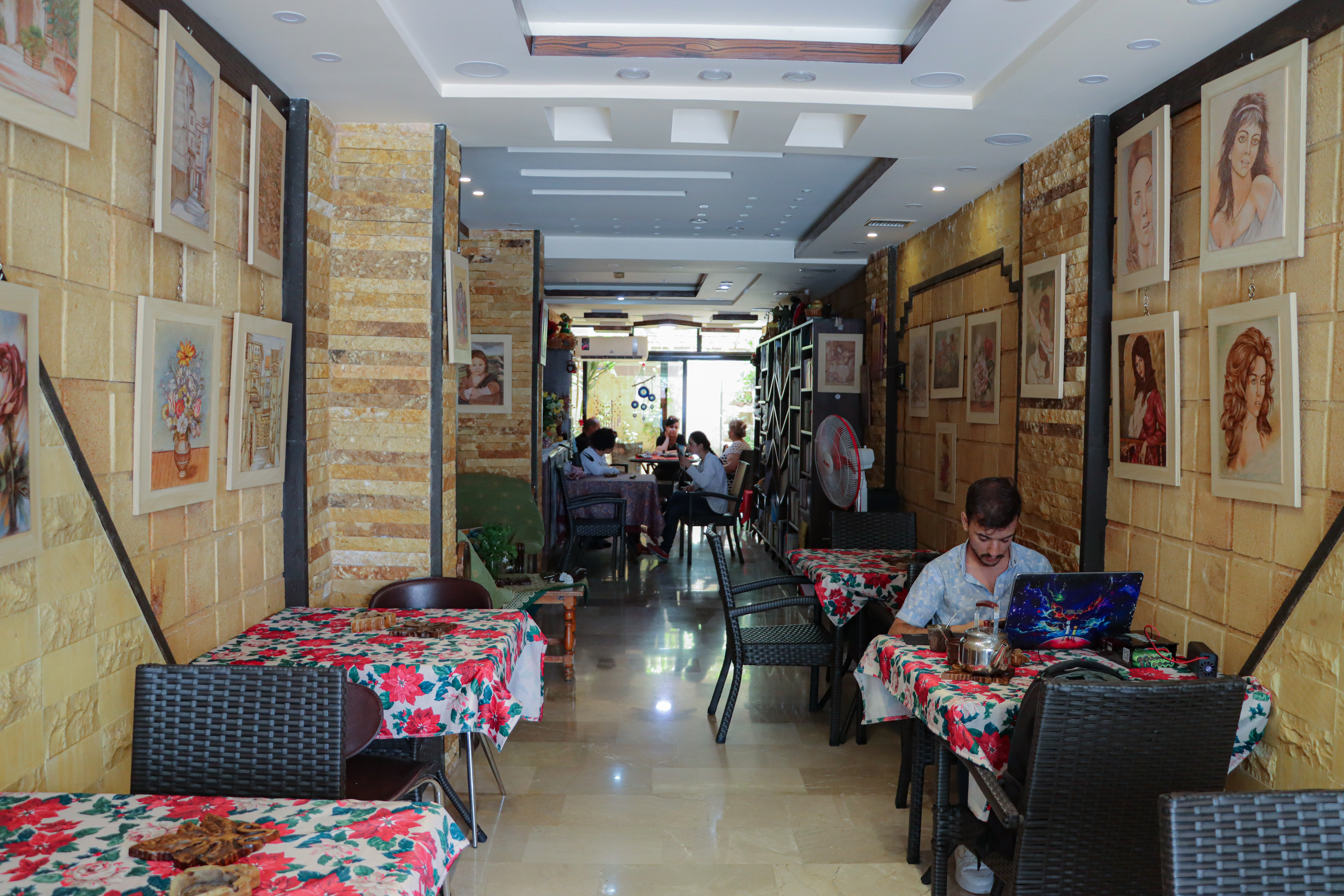
“We witnessed a lot of ugliness during the war. I felt the need to combat all this with beauty and culture,” said Linda. “Warak Ateek is a concept, not just a place. It is the first of its kind in Syria. Many people told me that I was gambling with my future and people might be reluctant to go into a place where persons with disabilities are serving. Someone told me I would be better off if I sold vegetables on the side of the road,” she added.
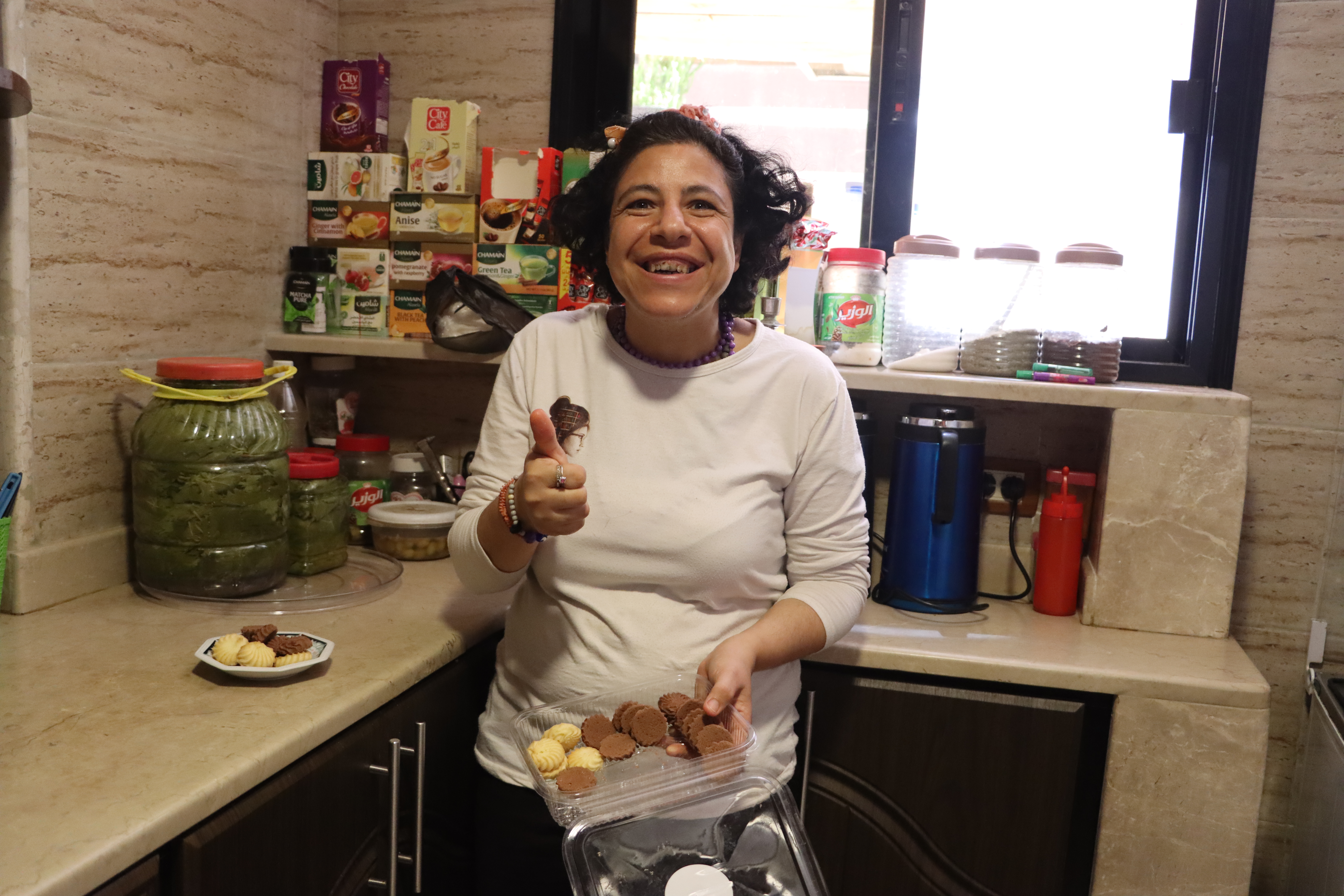
Marcelle placing the cookies for guests in the kitchen
Linda offers the café as a venue for young artists to showcase their artwork and for authors for their book signings. An extensive library spread over one wall in the café holds different kinds of books. “In the beginning, I only allowed people to read the books inside the café, but now it is fine if they want to take them home. Even if they do not return them. If only one person reads a book, it serves its purpose”.
Vertical shelves are stacked in one of the corners with intricate handmade crafts, embroidery, jewellery, and preserved food. “This place is always open for artists to display and sell art. I do not charge them for it. It is up to them if they want to leave me a percentage, but I do not ask. All the handicrafts are made by persons with disabilities or women supporting a person with disability. I also do it free of charge,” said Linda.
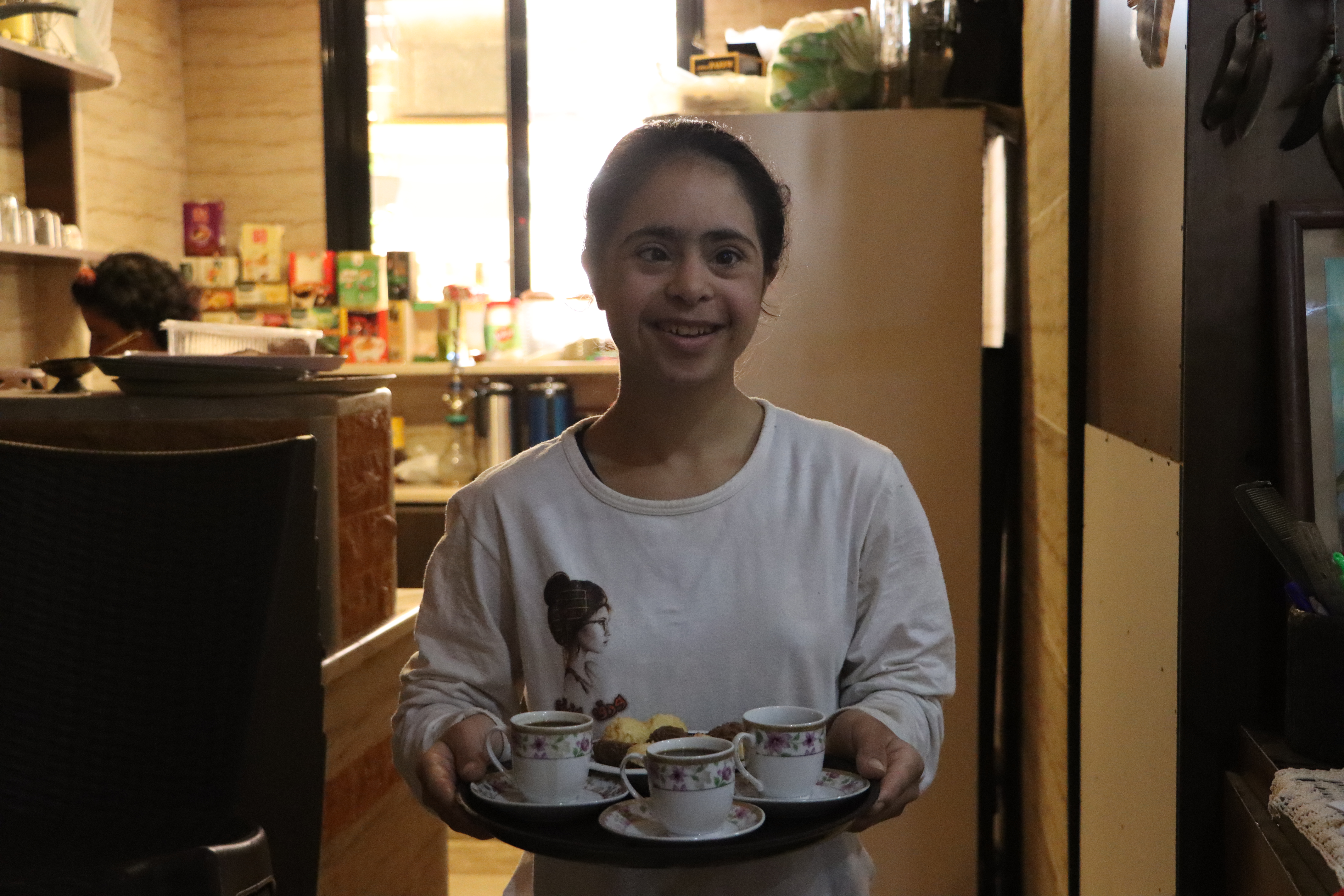
Alia serving coffee with a smile
Some of the regulars at the café are university students who sometimes sit there all day to study. “The café is set up like a home, and I always cook for myself and my girls, referring to Marcelle and Alia. One day, I noticed a medical student who had been studying since the morning and did not eat. I offered her some food since I figured she must be hungry. That is how I started serving home-cooked meals for students,” said Linda. Sometimes, students ask Linda for a specific food, and she cooks it for them. There are weekdays set for poetry readings and for amateur Oud players or other forms of music.
Lattakia is one of the areas affected by the devastating earthquake that struck Syria in February 2023. “I wish I could hire more people like Marcelle and Alia. We had to let go of one of our employees after the earthquake. It broke my heart to see Ahmad go, but I can no longer afford his salary,” said Linda as she teared up. “We are struggling to stay afloat, but I do not accept monetary donations. I ask them to buy artwork or handicrafts whenever someone offers,” she added proudly.
“Almost everything you see here is handmade. I use sustainable and recyclable materials. Plastic is not allowed in this place. I hope to inspire others and to see many places like this all over Syria,” said Linda. “In Warak Ateek, everyone is equal. Some people come here just to see the girls. I knew my journey would not be easy. I am willing to fight for it till my last breath,” she concluded.
By Asma’ Nashawati, Communications Associate, UNDP Syria
“We witnessed a lot of ugliness during the war. I felt the need to combat all this with beauty and culture”Linda Daher, Warak Ateek founder and manager

 Locations
Locations